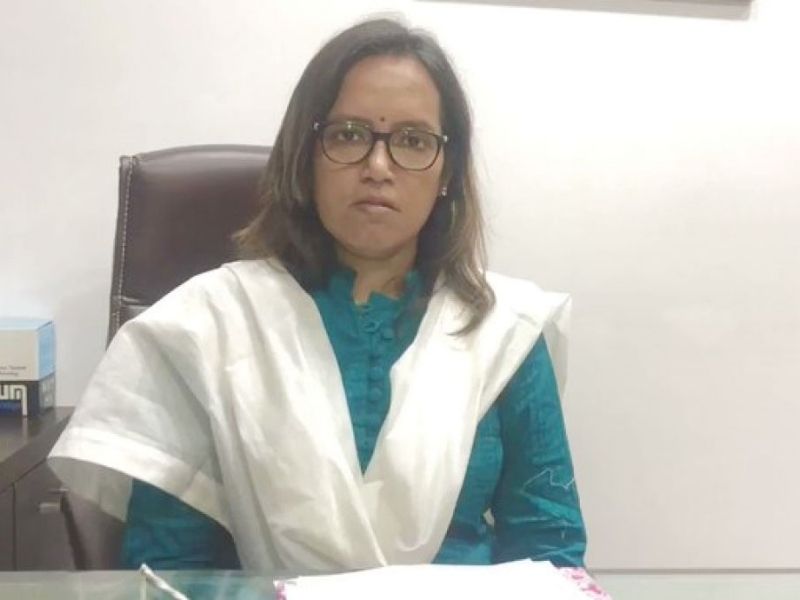
Varsha Gaikwad
– Dipta Joshi (Mumbai)
The state government’s cancellation of the school-leaving class X SSC exam of the Maharashtra State Board of Secondary and Higher Secondary Education (MSBSHSE), because of rising Covid-19 cases in the state, has aroused fears of class X students from 21,000 MSBSHSE-affiliated schools being at a disadvantage when competing with students from CBSE, CISCE, IB and other schools for admission into junior colleges (classes XI-XII) of their choice. This year 1.65 million students of state board schools were scheduled to write their class X exams from April 29-May 20. But on April 20, the state’s education minister Varsha Gaikwad announced cancellation of this school-leaving exam.
Maharashtra follows a 10+2+3 education system with higher secondary classes XI-XII commonly referred to as junior college. This system classifies class X students as school-leavers and requires them to seek fresh ad[1]mission into junior colleges. Class X exam results are thus an important determinant in securing admission into the best of the state’s 7,000 junior colleges where admission cut-offs are in the 80-90-plus percent range for all streams.
Moreover, junior colleges admit class X school-leaving students of all boards including CBSE, CISCE, etc on the basis of their average scores. This intensifies competition for admission into class XI aka FYJC or first year junior college. In the past academic year 2020-21, 2.83 million students registered for admission into junior colleges in the Mumbai metropolitan region under the state’s centralised online admission process. Little wonder ad[1]mission cut-offs of top-ranked junior colleges which are often integrated with undergrad colleges such as St. Xavier’s, Mumbai are 95 percent-plus.
Traditionally, students from schools affiliated with national boards (CBSE, CISCE) score highly in class X exams due to the more lenient marking system of these boards compared to their state board counterparts. This is because the national boards follow a system under which board examiners award 80 marks for answer papers and the remaining 20 marks are awarded by affiliated schools’ teachers. State board school parents believe internal marking gives CBSE and CISCE students advantage against MSBSHSE students — all of whom compete for FYJC admissions. The education minister’s announcement that the minis[1]try will “work out a process to mark state board students on the basis of internal assessments,” has not assuaged parents’ fears.
“Nobody expects the class X assessments to be fair this year if the onus of awarding marks is on schools rather than board examiners. With all schools shut down for the past year because of the pandemic, CBSE and CISCE affiliated schools conducted well-planned tests and projects evaluation. On the other hand, state board schools have been unable to conduct internal assessments, home assignments, check daily online attendance and project work continuously. Thus with no uniformity in teaching and marking systems of exam boards, marks assigned through internal exams will not be reliable. There will be a huge number of undeserving students who will clear class X. Had the state government heeded our demand to hold online instead of offline exams in urban areas, our children would not be in this predicament today,” says Prasad Tulaskar, a Mumbai-based parent whose Twitter campaign for online exams is supported by over 1 million parents and students.
Indeed, with online student attendance averaging a mere 50 percent in most schools in peri-urban and rural areas, school managements concede that 80 percent of MSBSHSE schools cannot mark students fairly on the basis of internal assessments this year.
“A huge number of state board schools have not conducted a single pre-board exam this year, let alone continuous and comprehensive evaluation. Asking such schools to submit marks on the basis of internal assessment will be a farce. Schools will vastly inflate marks awarded to advertise their pass percentages. Parents unhappy with marks awarded and wards denied admission into top-ranked junior colleges will get court stay orders,” warns Sachin Kalbande, founder of the Nagpur-based RTE Foundation that represents 3,000 self-financed English-medium schools.
Despite repeated demands from all stakeholders to cancel in-school exams especially after the second wave of the pandemic hit the state in February, the education ministry remained confident of holding in-school cam[1]pus exams and postponed the class X exam from March to April (April 29-May 20). It was only when CBSE cancelled its class X board exams on April 14 that Maharashtra’s education minister finally announced cancellation of the SSC (class X) exam.
The minister, who has since been holding consultations to devise “fair and accurate assessment criteria,” has offered students dissatisfied with their exam scores the option of writing the paper again at a later date. Among the various suggestions under consideration is to assess children on more than just this year’s internal assessments.
Yet another suggestion to deal with colleges experiencing huge demand for junior college admissions is for a common online junior college entrance exam to provide all school-leavers with a level-playing field. This is perhaps the best suggestion although it will impose further stress on students already stressed out by haphazard online learning for an entire year.
Also read: Maharashtra state board schools begin summer vacations